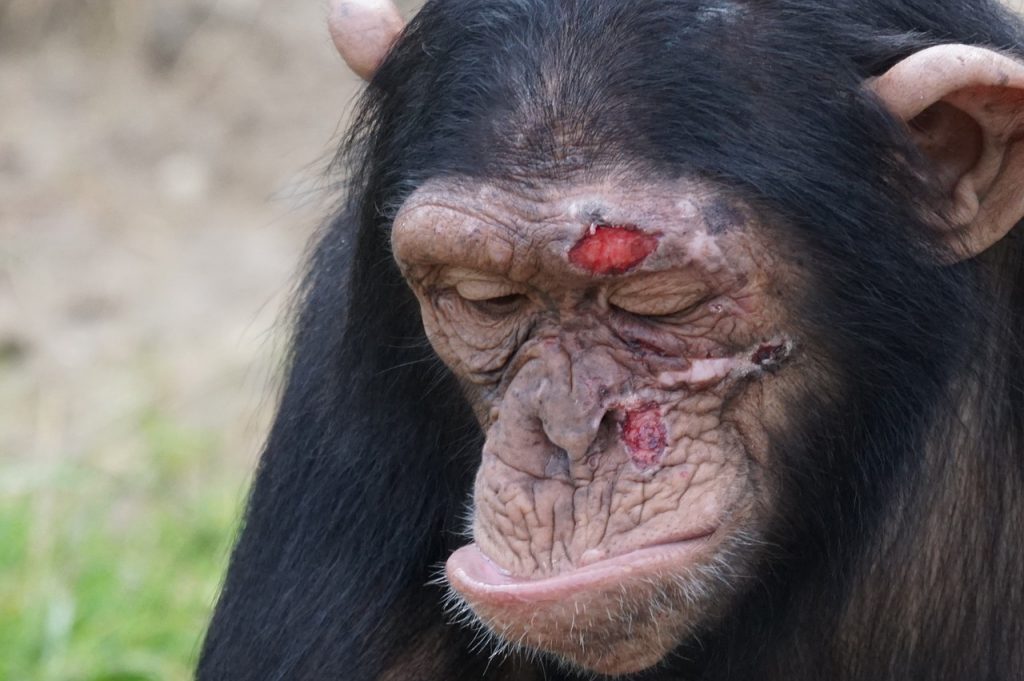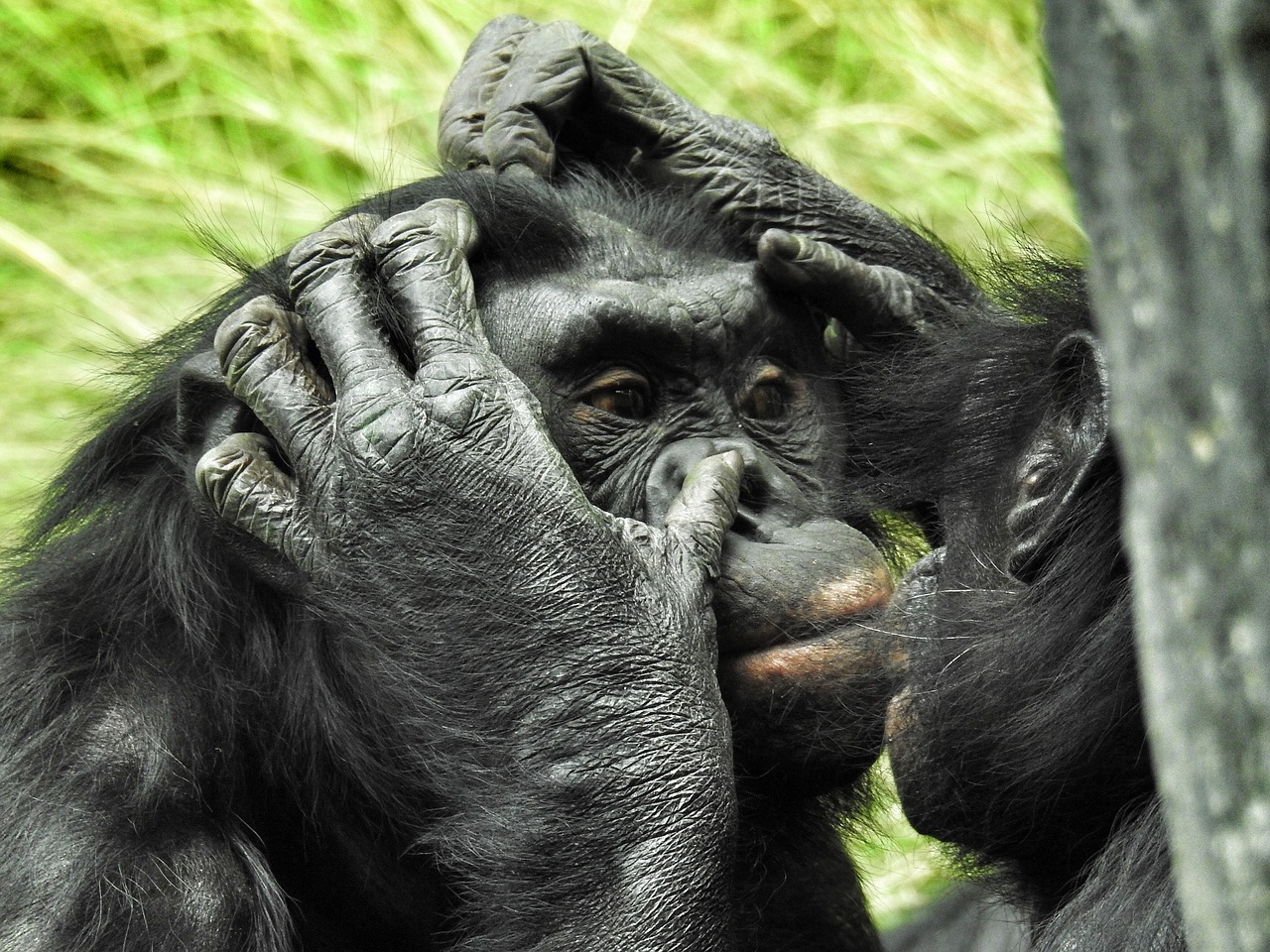
Twenty-five percent of primates in Uganda’s Kibale National Park have a severe physical deformity of some kind, and researchers believe pesticides are to blame.
Researchers working in the northern area of the park noticed that chimpanzees and baboons in the region had flattened noses, cleft lip, abnormal or absent nostrils, patchy fur, and concave faces. Some were missing fingers or entire limbs. What’s worse, a number of the females were not producing offspring.
Researchers initially estimated that 10% of the population was afflicted, and unfortunately, things are getting progressively worse. A survey only 2 years later showed that numbers had risen to 25% in chimpanzees and 17% in baboons.

After ruling out common tropical diseases like yaws, scientists began to wonder if pesticides used in nearby farms may be the culprit. While they couldn’t test on the animals themselves due to the fact that they’re protected, researchers gathered data on the food that the primates typically eat: seeds and stems. Soil samples from surrounding fields, river sediments, and fish were also tested.
Almost every sample they tested had higher levels of a controversial insecticide than was legally authorized. The insecticide, chlopyrifos, has been in use since the 1960’s. The chemical causes death by “overexciting” the nervous system of insects. In high doses, it does the same to mammals. The EPA has been fighting for a ban of the toxin for decades, citing developmental problems in babies and children. It was on track to be banned, however new EPA Administrator Scott Pruitt denied the proposed ban when he took office.
The L.A. Times reported, “Pruitt announced his decision to deny a petition to ban Dow’s chlorpyrifos pesticide from being sprayed on food even though a review by his agency’s scientists concluded that ingesting even minuscule amounts of the chemical can interfere with the brain development of fetuses and infants.”
Scientists concluded that the most likely cause of the deformities was the consumption of high levels of the insecticides in the region. One author of the study, Colin Chapman, expressed concern for both chimps and humans alike: “If the chimpanzees are getting this mostly from runoff and eating a little bit of the seeds and crops, what about all of the people?”




